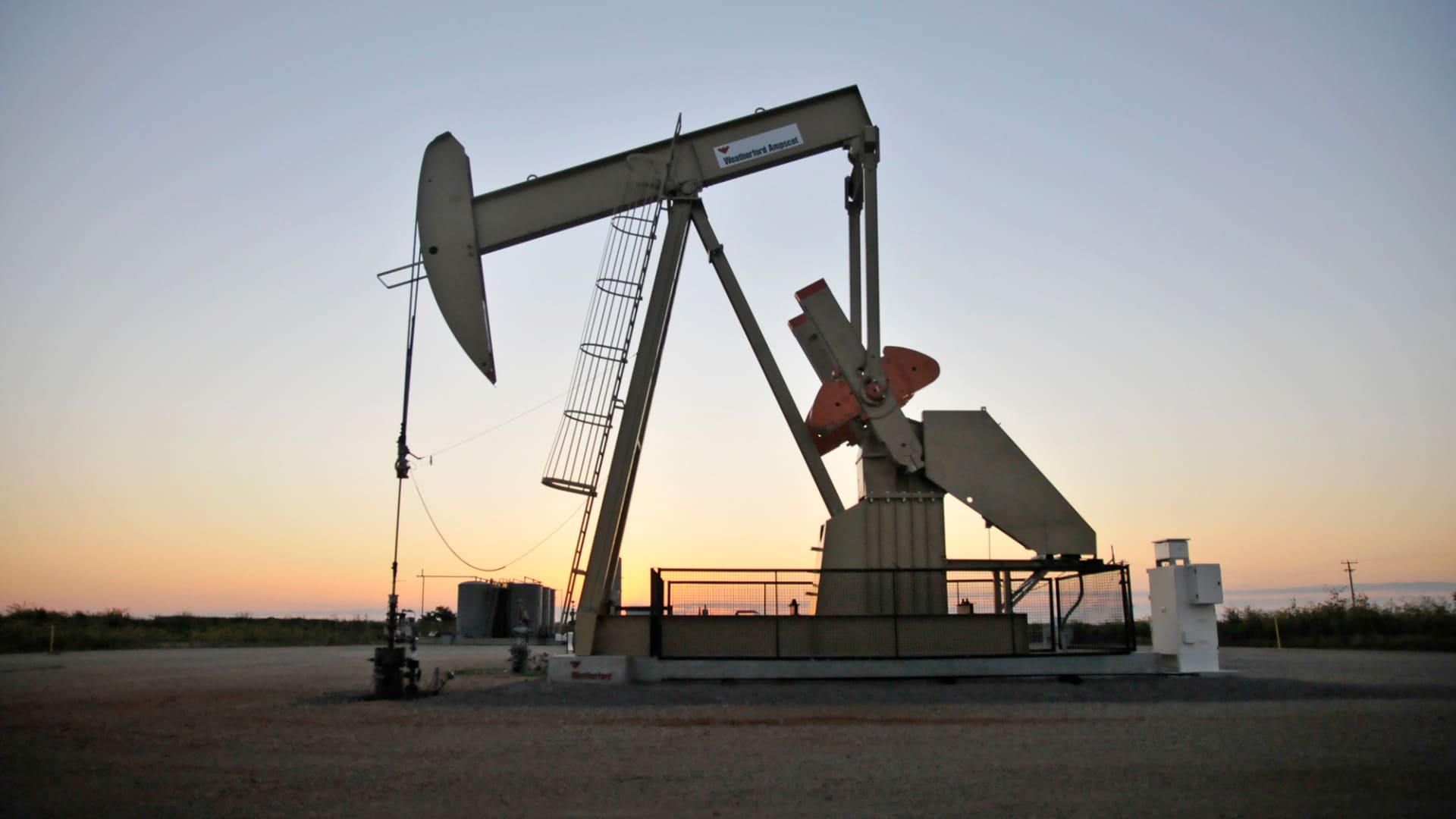Devon Energy’s third-quarter beat comes on the back of solid capital discipline

Club holding Devon Energy (DVN) beat sales and earnings forecasts when it reported third-quarter results Tuesday, highlighting the oil-and-gas producer’s capital discipline and ability to generate cash amid a volatile oil market. Total revenue climbed about 57% year-over-year, to $5.43 billion, exceeding analysts’ expectations of $4.95 billion, according to estimates from Refinitiv. Adjusted diluted earnings per share soared more than 100% compared with the year prior, to $2.18 a share, beating the consensus estimate of $2.13, according to Refinitiv. Note: Devon Energy is scheduled to host its post-earnings conference call on Wednesday at 11:00 a.m. ET. We’ll follow up with any relevant information from management after the call. Bottom line We continue to applaud management’s strict adherence to capital discipline and the prioritization of per-share financial growth, steady and consistent exploration-and-production activity, free cash flow generation, and market-leading cash returns to shareholders over production growth at any cost. As a result, Devon remains one of the best oil operators in the country. We continue to rate the company a 2 in the portfolio , meaning we would be buyers on a pullback. Devon shares fell more than 2% in afterhours trading, to roughly $75.51 a share, driven by lower-than-expected production guidance for the fourth quarter, along with higher capex spending estimates than analysts predicted. However, the share price will likely take its cue Wednesday from West Texas Intermediate crude, the U.S. oil benchmark, which closed at $88.37 a barrel Tuesday. 3Q cash flow Operating cash flow for the quarter increased 32% year-over-year, to $2.1 billion, roughly in line with analysts’ estimates of $2.18 billion. Free cash flow grew 31% annually, to $1.48 billion, in line with forecasts of $1.45 billion. Capital expenditures came in at $690 million, which is at the low end of management’s $680 million to $755 million guidance range and below the $727 million predicted by analysts. Capital allocation At the Club, we pay close attention to cash flow metrics. The core of our investment thesis for our oil producers is that their capital discipline, combined with a favorable commodity price environment, will lead to significant cash flow generation, a large percentage of which then gets returned to shareholders via dividends and buybacks. The strong cash flow realized in the third quarter allowed management to announce a fixed-plus-variable dividend of $1.35 a share. That’s down from $1.55 per share in the prior quarter, as oil prices skyrocketed in the second quarter in the wake of Russia’s invasion of Ukraine before plummeting in the third. WTI fell by roughly 25% in the three months ended Sept. 30, though has since rebounded more than 10% on the back of production cuts by the Organization of Petroleum Exporting Countries . Still, Devon’s new payment to shareholders represents a solid 7% dividend yield on an annualized basis, based on Tuesday’s closing price of $77.30. Devon did not aggressively make use of its $2 billion share repurchase program this quarter. The company bought back roughly $126 million worth of shares, putting its year-to-date total at $1.3 billion. We’ll probably hear more about this on earnings conference call Wednesday, but it’s likely the company paused its buyback plan as a result of its $1.8 billion cash acquisition of Validus Energy , a deal that was announced in August and closed in September. Given this financial discipline, Devon expects to end the year with a net debt-to-EBITDAX (earnings before interest, tax, deprecation, amortization, and exploration expense) ratio of 0.5 (on a trailing 12-months basis), down from 0.8 at the end of 2021. Production and pricing Total oil equivalent production for the quarter came in at 614,000 barrels a day, which is above the high end of management’s guidance range of 593,000 to 613,000 barrels a day, and well above analysts’ forecasts for 604,000 barrels a day of total oil equivalent production. The makeup of this output was as follows: Oil: 294,000 barrels a day, compared estimates for 293,600 barrels a day. Natural Gas Liquids: 154,000 barrels a day, versus forecasts for 153,500 barrels a day. Gas: 100,000 cubic feet per day, ahead of the 949,600 cubic feet a day predicted by analysts. Guidance For the fourth quarter, management is targeting a 6% year-over-year increase in production of 640,000 to 660,000 barrels of oil equivalent a day. The 650,000 barrel-a-day midpoint is below analysts’ estimates of about 660,000 barrels a day. Total capital expenditures are expected to be between $845 million and $915 million, above the $783 million forecasted by analysts. This guidance includes $120 million of incremental capital requirements related to recent bolt-on acquisitions in the Eagle Ford and Williston Basin. Free cash flow is expected to increase more than 25% on an annual basis. Considering Devon’s $1.17 billion of free cash flow in the fourth quarter last year, the target implies Devon will grow this figure to at least $1.46 billion, in line with the consensus estimate of $1.46 billion. (Jim Cramer’s Charitable Trust is long DVN. See here for a full list of the stocks.) As a subscriber to the CNBC Investing Club with Jim Cramer, you will receive a trade alert before Jim makes a trade. Jim waits 45 minutes after sending a trade alert before buying or selling a stock in his charitable trust’s portfolio. If Jim has talked about a stock on CNBC TV, he waits 72 hours after issuing the trade alert before executing the trade. THE ABOVE INVESTING CLUB INFORMATION IS SUBJECT TO OUR TERMS AND CONDITIONS AND PRIVACY POLICY , TOGETHER WITH OUR DISCLAIMER . NO FIDUCIARY OBLIGATION OR DUTY EXISTS, OR IS CREATED, BY VIRTUE OF YOUR RECEIPT OF ANY INFORMATION PROVIDED IN CONNECTION WITH THE INVESTING CLUB. NO SPECIFIC OUTCOME OR PROFIT IS GUARANTEED.
A pump jack operates at a well site leased by Devon Energy Production Co. near Guthrie, Oklahoma.
Nick Oxford | Reuters
Club holding Devon Energy (DVN) beat sales and earnings forecasts when it reported third-quarter results Tuesday, highlighting the oil-and-gas producer’s capital discipline and ability to generate cash amid a volatile oil market.

